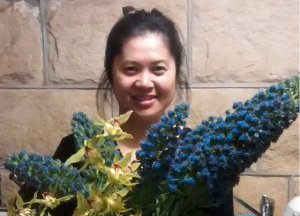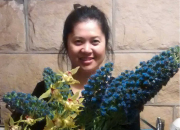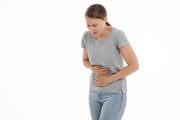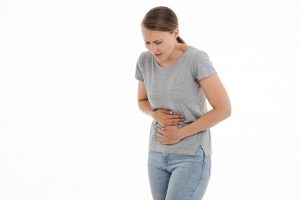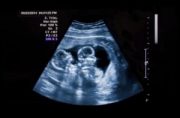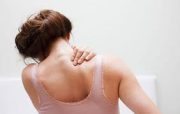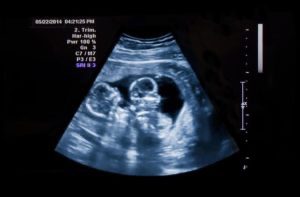
Pregnant with twins!
Pregnancy complications and miscarriage
So you’ve decided you’re ready to start a family… all begins well, you fall pregnant easily but sadly you have a miscarriage. You prepare yourself and start again, understanding that sometimes maintaining a pregnancy can be difficult.
This is Simone’s* story. A 35-year old university lecturer, living a busy but healthy and active lifestyle.
Pregnant with twins
Simone and her partner had been trying to have a baby for 2 years. Following recurrent miscarriage her doctor ordered blood tests which diagnosed Anti-Phospholipid Syndrome (APS). Just days later, they were advised they were 7 weeks pregnant with twins.
Anti-Phospholipid Syndrome (APS) is an auto-immune disorder of the blood. It is sometimes called Hughes syndrome or sticky blood.
In early pregnancy the anti-phospholipid antibodies (aPL) can cause early miscarriages because they prevent the pregnancy from embedding properly in the womb, and they inhibit the growth of fetal cells.
Simone was immediately concerned about the potential for miscarriage. Querying what she could do to take this pregnancy to full term, she began to search online… What natural pregnancy support is available? Can acupuncture provide pregnancy support?
A wholistic approach to health and pregnancy support – TEAM
Simone came in for an initial consultation seeking pregnancy support. We discussed her medical history, current condition and doctors’ approach and treatment to address APS and her pregnancies. Her doctor had prescribed administration of daily Clexane injections and aspirin medication to thin the blood and prevent her blood from clotting.
Further to this, we discussed eastern medicine – primarily the use of Japanese and Chinese acupuncture, moxibustion (moxa) and Chinese herbal medicine in pregnancy support. Traditional East Asian Medicine (TEAM) considers one’s outlook, the current state of day-to-day health, looking into clinical signs, symptoms and results to determine a diagnosis – using traditional Chinese medicine (TCM) or traditional Japanese medicine (TJM) paradigms. The TCM diagnosis guides the acupuncture and moxa treatment and any herbal medicines to work alongside and complement other medical treatment.
Thus, at each consultation we would work as part of a wholistic health and pregnancy support team: comprising of doctors, obstetricians, physiotherapists, specialists, midwives and her doula. Information from medications, blood tests, urine tests, ultrasound scans, baby positions, baby weights, physical exercises and recommendations would determine the TCM diagnosis and adjust the acupuncture and moxa treatment to her changing needs as the pregnancies progressed.
Natural Pregnancy Support with Acupuncture
Diagnosis of her health from a eastern medicine perspective indicated that constitutionally she had a life-long blood deficiency. Her blood was always working hard, generating extreme heat especially with her love of bike riding and 5-10 km jogs.
Given Simone’s constitution, pregnancy, APS presentation and medications, I recommended the following TEAM plan including acupuncture treatment and some lifestyle changes to reduce the heat in her blood, generate blood and promote blood circulation. The acupuncture treatment involved weekly consultation until she reached 12 weeks, follow-ups every 3 weeks until approximately 32 weeks, then fortnightly to weekly after that depending on her needs. The lifestyle changes involved reducing and changing her sport activities and making some dietary changes.
I worked together with her through the duration of her pregnancy for constitutional, APS-related and common pregnancy symptoms until the birth. Her blood work at 15 weeks showed there were no traces of anti-phospholipid antibodies (aPL), suggesting APS remission. She gave birth at almost 37 weeks by caesarean due to pre-eclampsia (high blood pressure) and the babies descending into the birth canal.
Following birth, one baby spent the first night in a humidicrib with both babies in the special care nursery monitoring for 2 weeks. Post nursery care they remained healthy and well and at 18 months reached the 50th percentile for weight. The babies have continued to be average weight for their age.
To understand more about how TCM treatments may assist you in your fertility journey please continue to read through our other fertility stories or contact us to book a consultation.
*Name has been changed
By Rebecca Bau – Acupuncture, Japanese Acupuncture, Chinese Herbal Medicine, Traditional East Asian Medicine (TEAM), Traditional Chinese Medicine (TCM), Traditional Japanese Medicine (TJM), Lohan Qigong.
